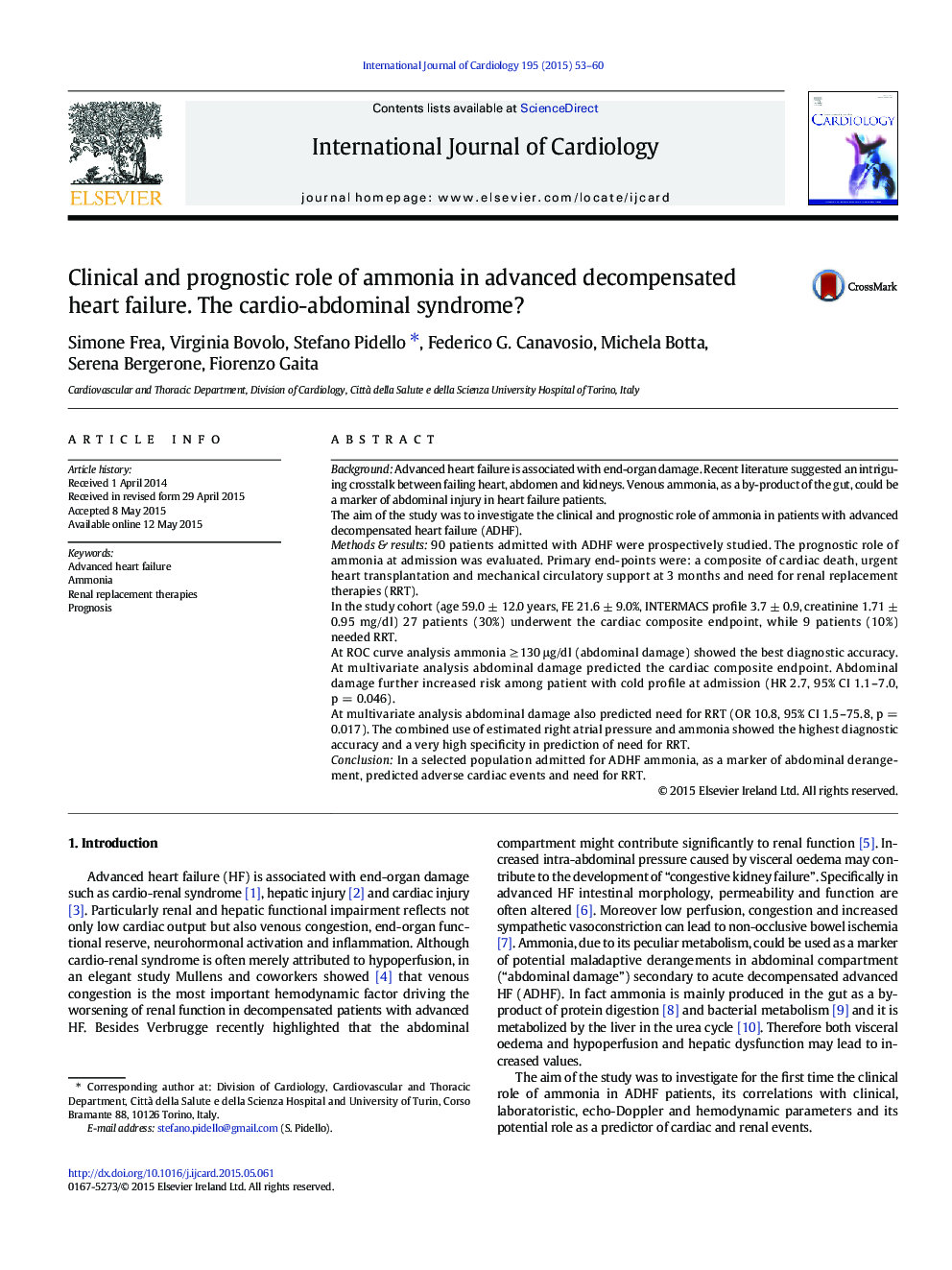| کد مقاله | کد نشریه | سال انتشار | مقاله انگلیسی | نسخه تمام متن |
|---|---|---|---|---|
| 5966105 | 1576157 | 2015 | 8 صفحه PDF | دانلود رایگان |
BackgroundAdvanced heart failure is associated with end-organ damage. Recent literature suggested an intriguing crosstalk between failing heart, abdomen and kidneys. Venous ammonia, as a by-product of the gut, could be a marker of abdominal injury in heart failure patients.The aim of the study was to investigate the clinical and prognostic role of ammonia in patients with advanced decompensated heart failure (ADHF).Methods & results90 patients admitted with ADHF were prospectively studied. The prognostic role of ammonia at admission was evaluated. Primary end-points were: a composite of cardiac death, urgent heart transplantation and mechanical circulatory support at 3 months and need for renal replacement therapies (RRT).In the study cohort (age 59.0 ± 12.0 years, FE 21.6 ± 9.0%, INTERMACS profile 3.7 ± 0.9, creatinine 1.71 ± 0.95 mg/dl) 27 patients (30%) underwent the cardiac composite endpoint, while 9 patients (10%) needed RRT.At ROC curve analysis ammonia ≥ 130 μg/dl (abdominal damage) showed the best diagnostic accuracy. At multivariate analysis abdominal damage predicted the cardiac composite endpoint. Abdominal damage further increased risk among patient with cold profile at admission (HR 2.7, 95% CI 1.1–7.0, p = 0.046).At multivariate analysis abdominal damage also predicted need for RRT (OR 10.8, 95% CI 1.5–75.8, p = 0.017). The combined use of estimated right atrial pressure and ammonia showed the highest diagnostic accuracy and a very high specificity in prediction of need for RRT.ConclusionIn a selected population admitted for ADHF ammonia, as a marker of abdominal derangement, predicted adverse cardiac events and need for RRT.
Journal: International Journal of Cardiology - Volume 195, 15 September 2015, Pages 53–60
